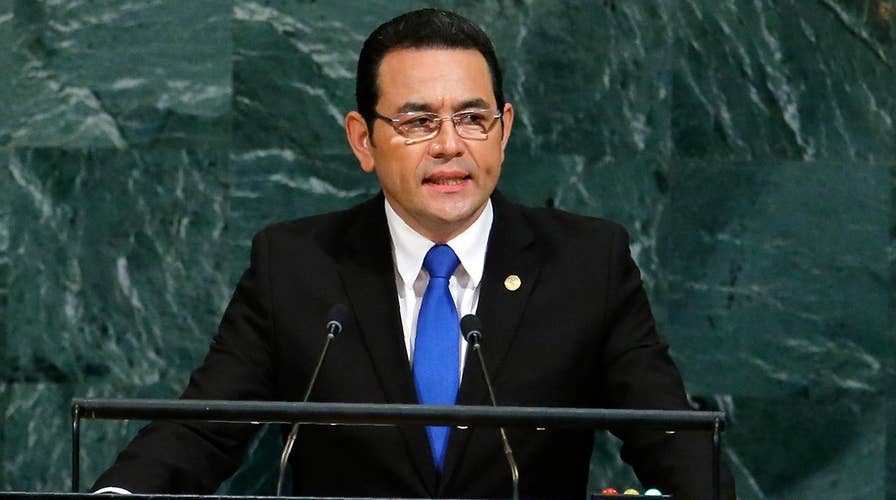Guatemala’s top diplomat defended the country’s decision to move its embassy in Israel to Jerusalem, rejecting international and domestic scrutiny after following the U.S.’ lead.
Foreign Minister Sandra Jovel said the change amounts to “a foreign policy decision, therefore sovereign,” and that Guatemala has no intention of changing their mind.
Guatemala President Jimmy Morales announced the switch Christmas Eve, becoming the first country to follow President Trump’s controversial decision to move the U.S. Embassy from Tel Aviv to Jerusalem.
Guatemala’s government has given no timeline for a move, as President Trump has also not said when a switch will be made.
However, Israel’s Ambassador to Guatemala, Mattanya Cohen, told local television that Guatemala would only move its embassy after the U.S., and that could take years, according to Haaretz.
“It won’t happen tomorrow morning. It will happen after the United States. That’s how they explained it to me. The announcement of the president and of the foreign minister was explicit that Guatemala would be immediately after the United States,” Cohen said.
Trump’s announcement Dec. 6 reversed decades of U.S. policy and set off weeks of clashes between Palestinian protesters and Israeli security forces that have left at least a dozen Palestinians dead.
The U.N. General Assembly voted overwhelmingly Thursday to condemn the U.S. decision in a non-binding resolution. Guatemala was one of nine nations that sided with the United States.
Israel claims all of Jerusalem as its capital, while the Palestinians claim the city’s eastern sector, which was captured by Israel in 1967. The city is home to sensitive Jewish, Muslim and Christian religious sites. Many governments have long said the fate of Jerusalem must be resolved through negotiations.
The Associated Press contributed to this report.

